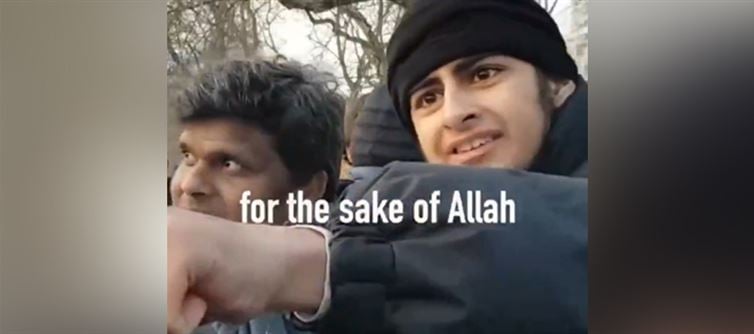
This kind of extremist rhetoric is the very reason why counter-terrorism measures and community-based de-radicalization programs are essential. It's important to understand that extremists exploit religious language and symbols to justify acts of hatred and violence that most believers reject outright. Islam, like Christianity, Judaism, and other major faiths, contains a wide range of interpretations, but the overwhelming majority of Muslims around the world reject violence and advocate for peace. Radical ideologues, however, manipulate doctrine for political purposes, creating a false narrative of religious war that fuels both jihadist extremism and Islamophobic responses.
 At the same time, allowing such dangerous individuals to operate freely or spread their views unchecked poses a genuine risk to public safety and social harmony. Law enforcement and intelligence services have a responsibility to intervene when speech crosses the line into incitement to violence or terrorism. But it's equally crucial for society to resist the urge to generalize such statements as reflective of an entire faith or community. Doing so not only misrepresents reality but also plays into the narrative of "us versus them" that extremists on all sides rely upon to justify their hostility. The appropriate response is one that upholds justice, protects civil liberties, and strengthens the social fabric through education, dialogue, and vigilance.
At the same time, allowing such dangerous individuals to operate freely or spread their views unchecked poses a genuine risk to public safety and social harmony. Law enforcement and intelligence services have a responsibility to intervene when speech crosses the line into incitement to violence or terrorism. But it's equally crucial for society to resist the urge to generalize such statements as reflective of an entire faith or community. Doing so not only misrepresents reality but also plays into the narrative of "us versus them" that extremists on all sides rely upon to justify their hostility. The appropriate response is one that upholds justice, protects civil liberties, and strengthens the social fabric through education, dialogue, and vigilance.




 click and follow Indiaherald WhatsApp channel
click and follow Indiaherald WhatsApp channel